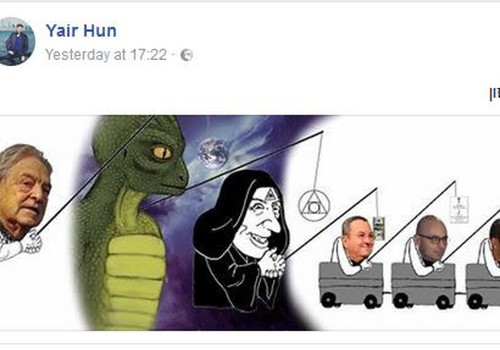Snubbed by Netanyahu, Red Cross toes fine line trying to help civilians in Israel-Hamas conflict
Netanyahu #Netanyahu

DAVOS, Switzerland (AP) — The International Committee of the Red Cross has been losing influence, funding and staff, and disparaging remarks from Israeli Prime Minister Benjamin Netanyahu are just the latest headache for the Geneva-based humanitarian group.
Netanyahu said he intentionally bypassed the Red Cross in helping arrange a shipment into Gaza of medicines for dozens of Israeli hostages with chronic illnesses who have been held by the militant group Hamas for months. There was no immediate word Thursday whether the medicines had gotten to the hostages.
The Red Cross tries to rise above politics, but keeps getting dragged into it, and not just over the conflict in Gaza. It has also faced political pressure from Ukraine, whose government accused it of not doing enough to try to reach Ukrainians — including children — taken to Russia during the European conflict.
Here’s a look at the International Committee of the Red Cross and its recent efforts in the Middle East.
WHAT IS THE ICRC?
The International Committee of the Red Cross is an independent and impartial caretaker of the international Geneva Conventions, drawn up in phases in the mid-20th century, that help ensure the respect of civilians and detainees during conflict.
International humanitarian law that is the bedrock of its work has come under increased strain in recent years, such as from Russia’s invasion of Ukraine in 2022 and now the Middle East conflict that began after Hamas’ deadly rampage and hostage-taking in Israel in Oct. 7.
ICRC has a long history of visiting prisoners of war, to check on their health and conditions of detention and to get word to their families. In recent decades, its representatives have also made visits to hostages — people who are detained but are not technically POWs. That’s not an official role, but no other group comes close to having such a responsibility.
The organization has been under intense financial pressure in recent months and has been cutting jobs, at a time when the number and intensity of conflicts that require its intervention have increased.
At the same time, it sometimes finds its pleas for countries to give it access to prisoners of war and other detainees, particularly like those held by Russia, going unheeded. In places like Yemen, it has had better success in carrying out its role, such as by midwifing prisoner exchanges.
The ICRC is a sister organization of an umbrella group of Red Cross and Red Crescent organizations that unites national federations and mostly focuses on things like natural disasters, regular medical assistance and blood drives.
WHAT IS ITS ROLE IN THE GAZA CONFLICT?
The ICRC has been striving from the start of the conflict to help ease the suffering of civilians. It helped arrange the release of more than 100 Israeli and foreign hostages in November. Images of its operatives in the organization’s distinctive red-and-white vests escorting freed hostages into Red Cross vehicles were broadcast worldwide.
The organization has about 125 people in Gaza now, including medical staff and a team responsible for delivering medical assistance for displaced people.
While the United Nations and other aid groups have sent medical aid and other help to beleaguered Palestinians in Gaza, no outside group has been able to get aid to the hostages, including those suffering from asthma and high blood pressure.
A Red Cross statement Thursday said it has been “calling for the unconditional release of the hostages as a priority, while also pressing for access to them and the ability to provide medical care.”
It said it has been working to “agree to a mechanism to deliver medicines to the hostages” — who now total more than 130 — and had with the two sides “initiated the conversation in its role as a neutral intermediary.”
The two sides agreed on how much medicine would be sent and by whom under the arrangement by Qatar and France, the Red Cross said, while adding that “the mechanism that was agreed to does not involve the ICRC playing any part in its implementation, including the delivery of medication.”
WHY THE TESTY INTERACTION WITH NETANYAHU?
A video made public last month, in a rare exposition of ICRC conversations with a political leader, showed Netanyahu calling on ICRC President Mirjana Spoljaric to exert “public pressure” on Hamas to allow medicines through to the hostages. He turned and pointed to a box labeled as containing medicine for the hostages to make his point.
Spoljaric countered that such a move would be ineffective, and has since emphasized the ICRC’s neutrality.
On Thursday, Netanyahu again took aim at the aid group. He boasted that he purposely bypassed it when working to arrange the transfer of medicines to Gaza, and instead used the services of Qatar, which has mediated between Israel and Hamas.
In explaining his decision, he recalled his previous encounter with the Red Cross president, alleging she refused at the time to help get medicine for hostages into Gaza. The Red Cross cannot pressure Hamas to let it see the hostages if the militant group refuses.
“So we bypassed her via the mediator — in this case the Qatari mediator who promised that he will make sure … the medicine will reach every single hostage who needs it,” he said at a televised prime time news conference.
The Red Cross responded: “The ICRC has long insisted that the hostages receive the medicines they need, and we continue to stand ready to deliver them provided that there is an agreement for us to do so.”
___
Associated Press writer Josef Federman in Jerusalem contributed to this article.